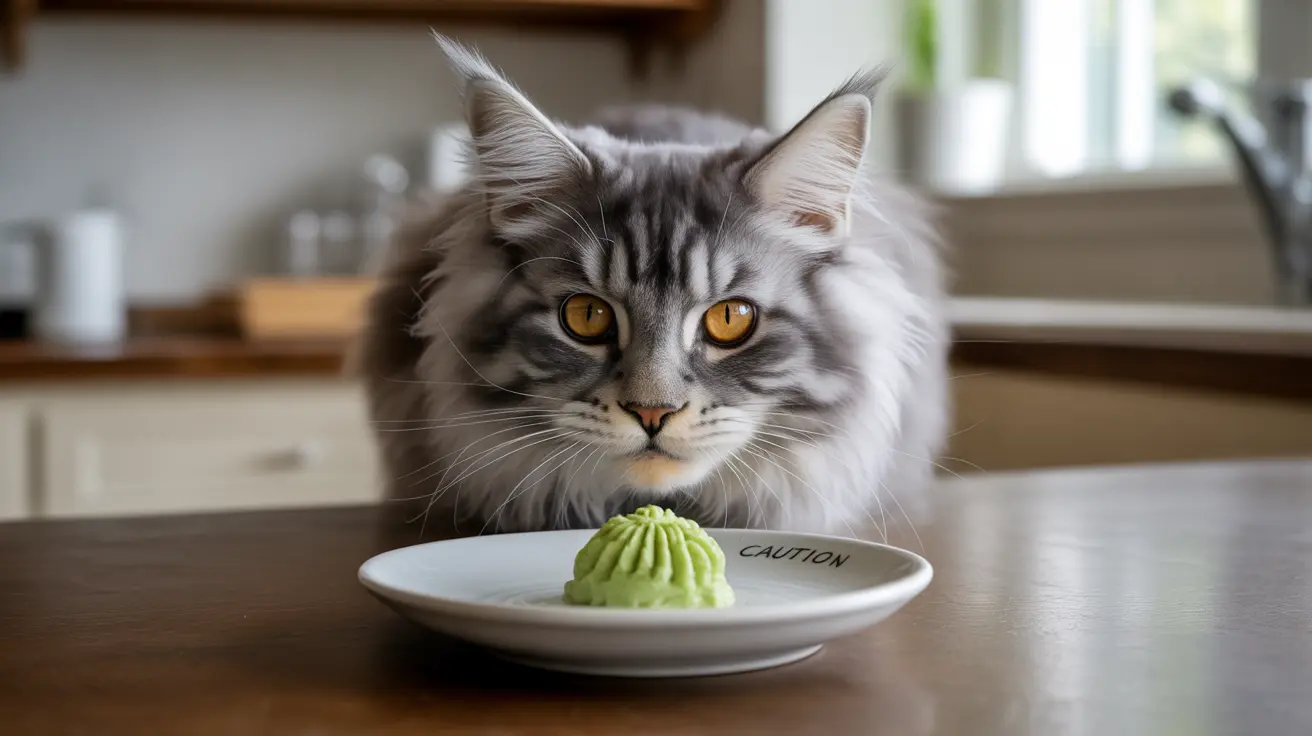Understanding Wasabi: Real vs. Imitation
Before discussing whether cats can eat wasabi, it's important to understand what wasabi actually is. True wasabi comes from the Wasabia japonica plant, but what most people encounter is actually an imitation product. Real wasabi is extremely rare and expensive, with estimates suggesting that only 5% of wasabi served in restaurants worldwide is authentic.
- Horseradish as the main ingredient
- Mustard powder
- Artificial food coloring
- Various preservatives and additives
The Effects of Wasabi on Cats
While pure wasabi isn't technically toxic to cats, it's definitely not something they should eat. Cats have sensitive digestive systems and are not equipped to handle spicy or pungent foods. The isothiocyanates that give wasabi its distinctive kick can cause significant discomfort in cats.
- Horseradish can irritate the digestive tract
- Mustard powder can cause severe gastrointestinal issues
- Artificial additives may trigger allergic reactions
Signs Your Cat Has Eaten Wasabi
- Excessive drooling or salivation
- Vomiting and diarrhea
- Stomach pain or discomfort
- Decreased appetite
- Lethargy or unusual behavior
What to Do If Your Cat Eats Wasabi
- Remove any remaining wasabi from their reach
- Provide fresh water
- Monitor their behavior closely
- Contact your veterinarian if symptoms appear or persist
Safe Alternatives to Wasabi for Cats
- Commercial cat treats designed for felines
- Small pieces of plain, cooked chicken
- Tiny amounts of cooked fish (without seasoning)
- Cat grass or catnip for enrichment
Prevention Tips
- Store all condiments securely
- Clean up any spills immediately
- Keep cats away from the dining table during meals
- Educate family members about foods that are unsafe for cats
Frequently Asked Questions
Is it safe for cats to eat real wasabi or imitation wasabi?
No, neither real nor imitation wasabi is safe for cats to eat. While real wasabi isn't technically toxic, it can cause digestive upset. Imitation wasabi is potentially more dangerous due to its ingredients like horseradish and mustard powder.
What are the health risks if my cat accidentally eats wasabi or imitation wasabi?
Health risks include gastrointestinal upset, vomiting, diarrhea, excessive drooling, and potential allergic reactions. In severe cases, cats may experience significant digestive distress requiring veterinary attention.
Why is imitation wasabi more dangerous for cats than authentic wasabi?
Imitation wasabi contains additional ingredients like horseradish and mustard powder that can be more harmful to cats than pure wasabi. These ingredients can cause more severe digestive issues and potential allergic reactions.
What symptoms should I watch for if my cat consumes wasabi or sushi condiments?
Watch for excessive drooling, vomiting, diarrhea, decreased appetite, lethargy, and signs of digestive discomfort. If these symptoms appear or persist, contact your veterinarian.
What are safe and healthy alternatives to wasabi if I want to share treats with my cat?
Safe alternatives include commercial cat treats, small pieces of plain cooked chicken or fish, and specially formulated feline treats. Always stick to foods specifically designed for cats or plain, unseasoned protein sources.
Conclusion
While cats might show curiosity about wasabi, it's best to keep this spicy condiment away from your feline friends. Focus instead on providing them with appropriate, nutritious foods and treats designed specifically for cats. If your cat does consume wasabi, monitor them closely and contact your veterinarian if you notice any concerning symptoms.






